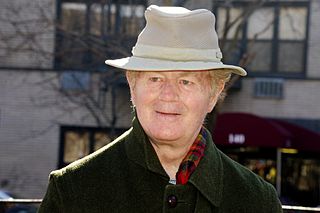A Quote by Noah Webster
The laws are the sole guardians of right, and when the magistrate dares not act, every person is insecure.
Related Quotes
Virtue means doing the right thing, in relation to the right person, at the right time, to the right extent, in the right manner, and for the right purpose. Thus, to give money away is quite a simple task, but for the act to be virtuous, the donor must give to the right person, for the right purpose, in the right amount, in the right manner, and at the right time.
Remember that you are an actor in a play, and that the Playwright chooses the manner of it: If he wants you to act a poor man you must act the part with all your powers; and so if your part be a cripple or a magistrate or a plain man. For your business is to act the character that is given you and act it well. The choice of the cast is Another's.
We must all work in harmony with each other to stand up for what is right, to speak up for what is fair, and to always voice any corrections so that the ignorant become informed and justice is never ignored. Every time a person allows an act of ignorance to happen, they delay our progress for true change. Every person, molecule and thing matters. We become responsible for the actions of others the instant we become conscious of what they are doing wrong and fail to remind them of what is right.
The laws ought to be so framed as to secure the safety of every citizen as much as possible. ... Political liberty does not consist in the notion that a man may do whatever he pleases; liberty is the right to do whatsoever the laws allow. ... The equality of the citizens consists in that they should all be subject to the same laws.
If Aristotle, Livy, and Harrington knew what a republic was, the British constitution is much more like a republic than an empire. They define a republic to be a government of laws, and not of men. If this definition is just, the British constitution is nothing more or less than a republic, in which the king is first magistrate. This office being hereditary, and being possessed of such ample and splendid prerogatives, is no objection to the government's being a republic, as long as it is bound by fixed laws, which the people have a voice in making, and a right to defend.
Laws, it is said, are for the protection of the people. It's unfortunate that there are no statistics on the number of lives that are clobbered yearly as a result of laws: outmoded laws; laws that found their way onto the books as a result of ignorance, hysteria or political haymaking; antilife laws; biased laws; laws that pretend that reality is fixed and nature is definable; laws that deny people the right to refuse protection. A survey such as that could keep a dozen dull sociologists out of mischief for months.
How do you know if the next act you are about to do is the right one or the wrong one? Consider the face of the poorest and most vulnerable human being that you have ever chanced upon, and ask yourself if the act that you contemplate will be of benefit to that person; and if it will be, it's the right thing to do, and if not, rethink it.



































